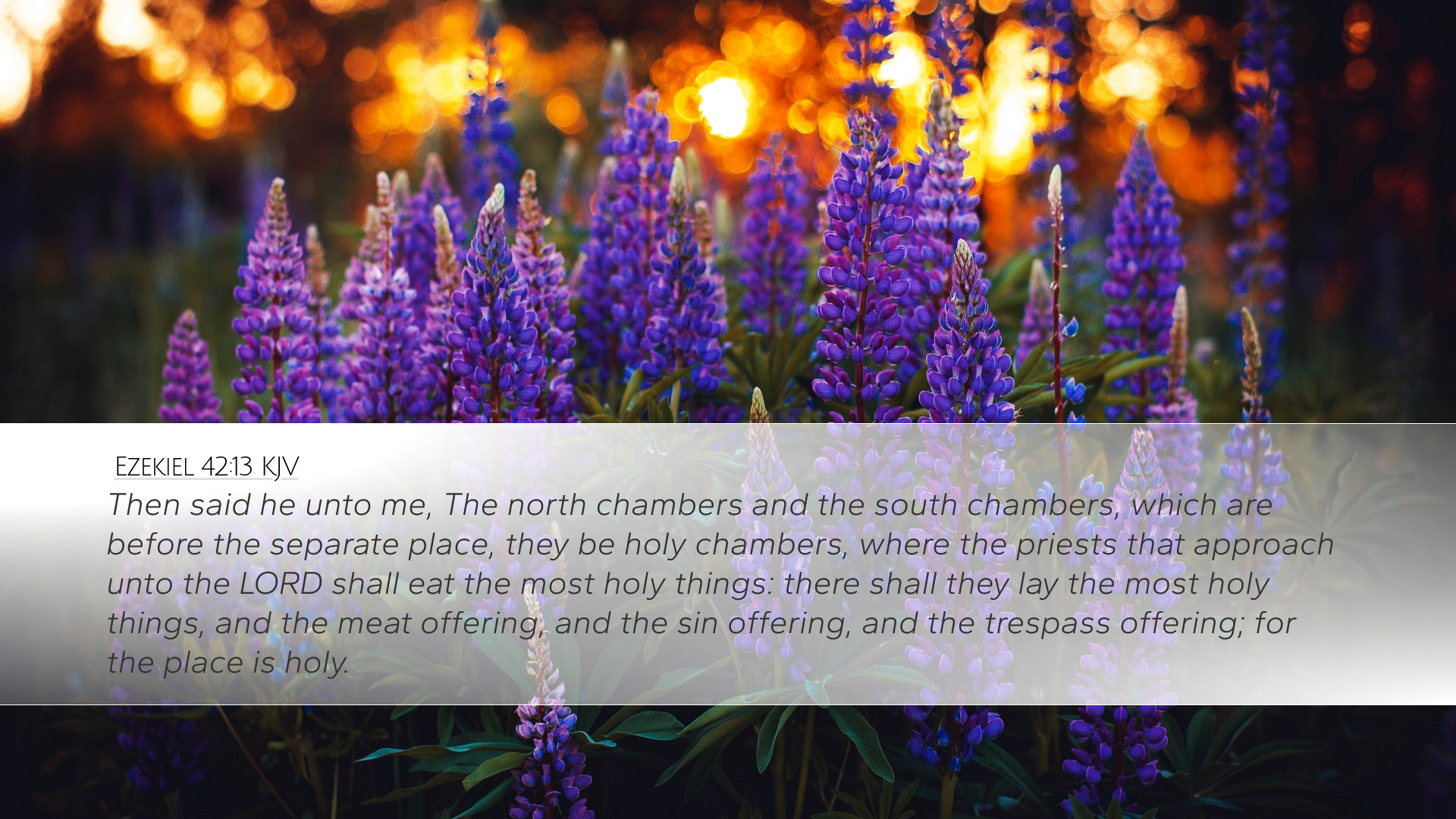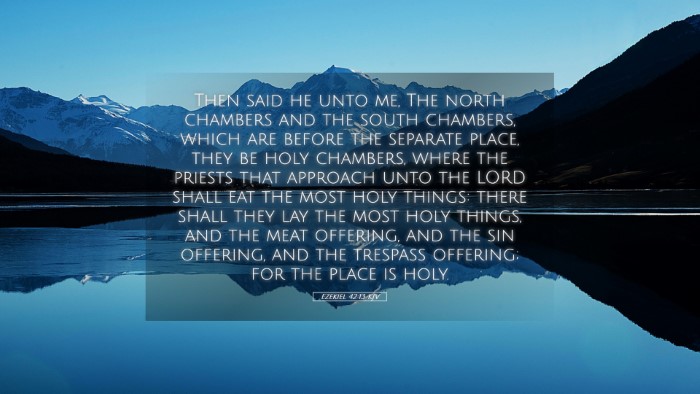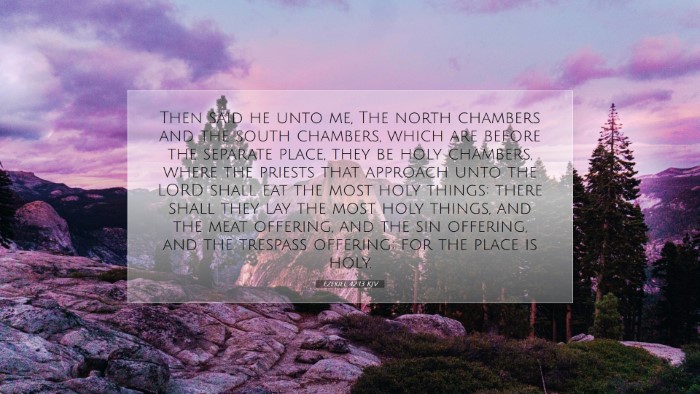Ezekiel 42:13 Commentary
Verse: Ezekiel 42:13 - "Then said he unto me, The north chambers and the south chambers, which are before the separate place, they be holy chambers, where the priests that approach unto the LORD shall eat the most holy things: there shall they lay the most holy things, and the meat offering, and the sin offering, and the trespass offering; for the place is holy."
Introduction
This verse offers profound insights into the holiness of God and the responsibilities of the priests in relation to the sacred space designated for worship. The structure described emphasizes the careful observance required in worship and the significance of the offerings made to God. This commentary draws insights primarily from the works of Matthew Henry, Albert Barnes, and Adam Clarke to elucidate the theological and practical implications of this passage.
Contextual Background
The passage is set within Ezekiel's vision of the temple, which serves as a reminder of God's covenant with Israel and the expectation of holiness among His people. As the prophet outlines the design of the temple, he emphasizes the sacredness of certain areas and the priestly roles involved.
Holiness of the Chambers
Matthew Henry's Insight: Henry expounds on the concept of holiness in this text. He notes that the chambers referred to are not merely functional spaces but are charged with divine significance. They serve as the locales where priests partake of the "most holy things," specifically designated for dedicated service to God.
Albert Barnes' Perspective: Barnes highlights that these chambers underline the distinction between the common and the sacred. The fact that only priests approach these areas signifies a structured approach to worship—denoting that not all may enter into God’s holy presence at will, but only those set apart for such duties.
Adam Clarke's Commentary: Clarke emphasizes the necessity of understanding the symbolism of the chambers. The separation of spaces indicates that God intends for His people to recognize the sacredness of worship practices and the preparation needed to commune with Him. The priests' role becomes a critical aspect of maintaining this separation.
Significance of Offerings
This text speaks to the ritualistic practices involving the "most holy things," including various offerings.
- Meat Offerings: As indicated, these offerings are an expression of thanksgiving and dedication, signifying the people’s acknowledgment of God’s provision.
- Sin Offerings: The necessity of sin offerings points towards the atoning work essential in approaching God, highlighting humanity’s need for redemption.
- Trespass Offerings: These offerings reflect the seriousness of transgressions against God's commandments and the need for restoration.
The Nature of God's Presence
The holiness associated with the chambers signifies God’s presence. Understanding this allows us to appreciate the sacred duty bestowed upon the priests.
Matthew Henry Remarks: He observes that the priests, by fulfilling their roles in these holy chambers, act as intermediaries bringing the offerings of the people to God, thereby reinforcing the relational dynamics of worship.
Lessons for Today’s Church
The principles derived from this passage are highly applicable in today's ecclesial contexts:
- Reverence in Worship: As God’s people approach Him, there is a call for an understanding of holiness, leading to reverence and sincere heart preparation.
- Leadership and Responsibility: Church leaders are reminded of their duties to lead in holiness and guide their congregations properly in worship practices.
- Understanding Offerings: Increased awareness around offerings—both spiritual and material—should be cultivated in churches today to reflect true dedication to God.
Conclusion
Ezekiel 42:13 emphasizes the stringent holiness governing the priests and the sacred nature of the worship space. The insights from Matthew Henry, Albert Barnes, and Adam Clarke guide the reader through a deeper understanding of the theological implications of this verse. The call to holiness remains relevant, urging contemporary believers to reflect on their approach to God with sincerity and reverence.


